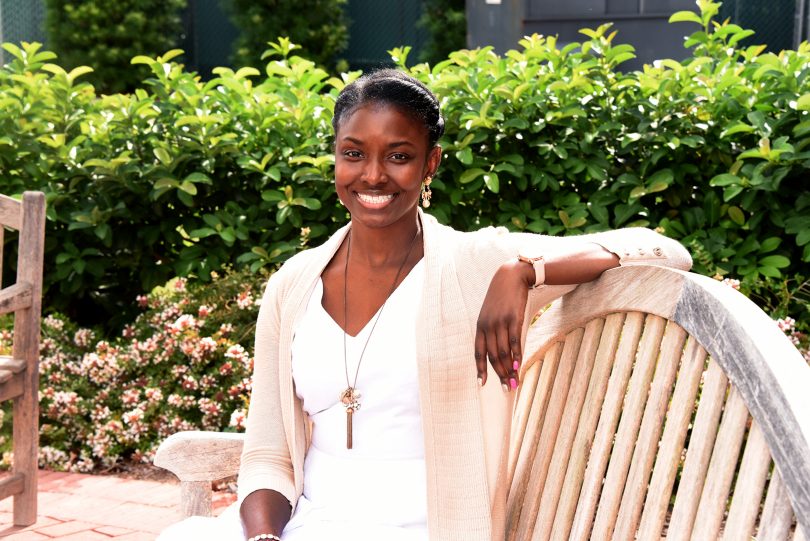Pushing. Twisting. Cramping.
These are words that Krystle Stone uses to describe the pain she often feels as a result of sickle cell disease. This pain can start anywhere, but for Stone, it usually begins in her legs and back.
“Sometimes it’s a dull pain, but often it’s sharp, like a pin or needle jabbing me,” Stone said.
Sickle cell disease (SCD) affects about 90,000 to 100,000 people in the United States, mainly blacks or African Americans, according to the Centers for Disease Control and Prevention. SCD gets its name from the abnormal sickle shape that the red blood cells take on in patients with the disease. These sickle cells often get stuck in the smaller blood vessels and block the flow of blood and oxygen to organs, causing severe pain, organ damage, serious infections or even stroke.
“These clusters of sickle cells cause pain in my joints, and I have problems with my hands, too,” Stone said.
The diagnosis and early years
Stone, now 31, was diagnosed of this chronic, incurable health condition when she was just four months old.
“It was one of those horror stories,” Stone said. “My mom was terrified. They didn’t know much about sickle cell, and many thought it was a death sentence.”
When she was just a baby, Stone’s mom began taking her to a pediatric sickle cell specialist at the Medical College of Georgia at Augusta University, but it wasn’t until seventh grade when Stone actually understood what having SCD meant.
“I’d say that’s when I became more independent in taking care of myself, listening to the doctors, and taking my medications,” she said.
The turning point
Refusing to be limited by her disease, the Wrens native tried out and became a cheerleader for two years during middle school.
“That was a real turning point in my life,” she said. “I was like, ‘ok,’ even though I have sickle cell, I can still participate in lots of things.”
After graduating from high school, Stone went on to receive her associate’s and bachelor’s degrees. Through it all, she has learned how to recognize when her body is heading for a sickle cell crisis and how to cope with these painful flare ups. Sometimes that means taking a couple of ibuprofen pills, but when the pain is really bad, it could warrant a trip to the emergency room for treatment.
From pain to purpose
Stone draws on her own experience with SCD to help others who have the disease. She works with the partner organization Parent to Parent of Georgia and continues to draw on her own experiences to help others with the disease. She previously worked with the Augusta University Sickle Cell Transition Program as an adult mentor. In this role, she helped teens navigating from the Pediatric Cancer and Blood Disorder Program at the Children’s Hospital of Georgia at Augusta University into adult care at the Augusta University Sickle Cell Center.
“I talk with the parents of children who are newly diagnosed, and I let them know that their kids are in the best place they could be as far as sickle cell care goes,” Stone said of the university, which has played an important role in developing clinical programs and research into SCD since the 1920s.
Stone said she’d like to get her master’s degree, a move that she hopes will open the door for her to work in sickle cell research at the university.
“It’s near and dear to my heart,” she said.
But for now, she is content with preparing others for their journey with SCD, including emphasizing the importance of regular well visits.
“Keeping these appointments can really help with managing the disease and avoiding getting sick,” Stone said. “It’s so important to take a hold of this thing and to help others become more educated about the illness.”
She said, “I tell them, ‘You have sickle cell, but it doesn’t have you.'”
On Sept. 15, 2016, the Honorable Hardie Davis Jr., Mayor of Augusta, presented a proclamation for Sickle Cell Disease Awareness Month.


